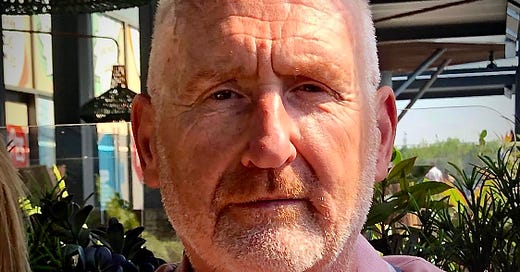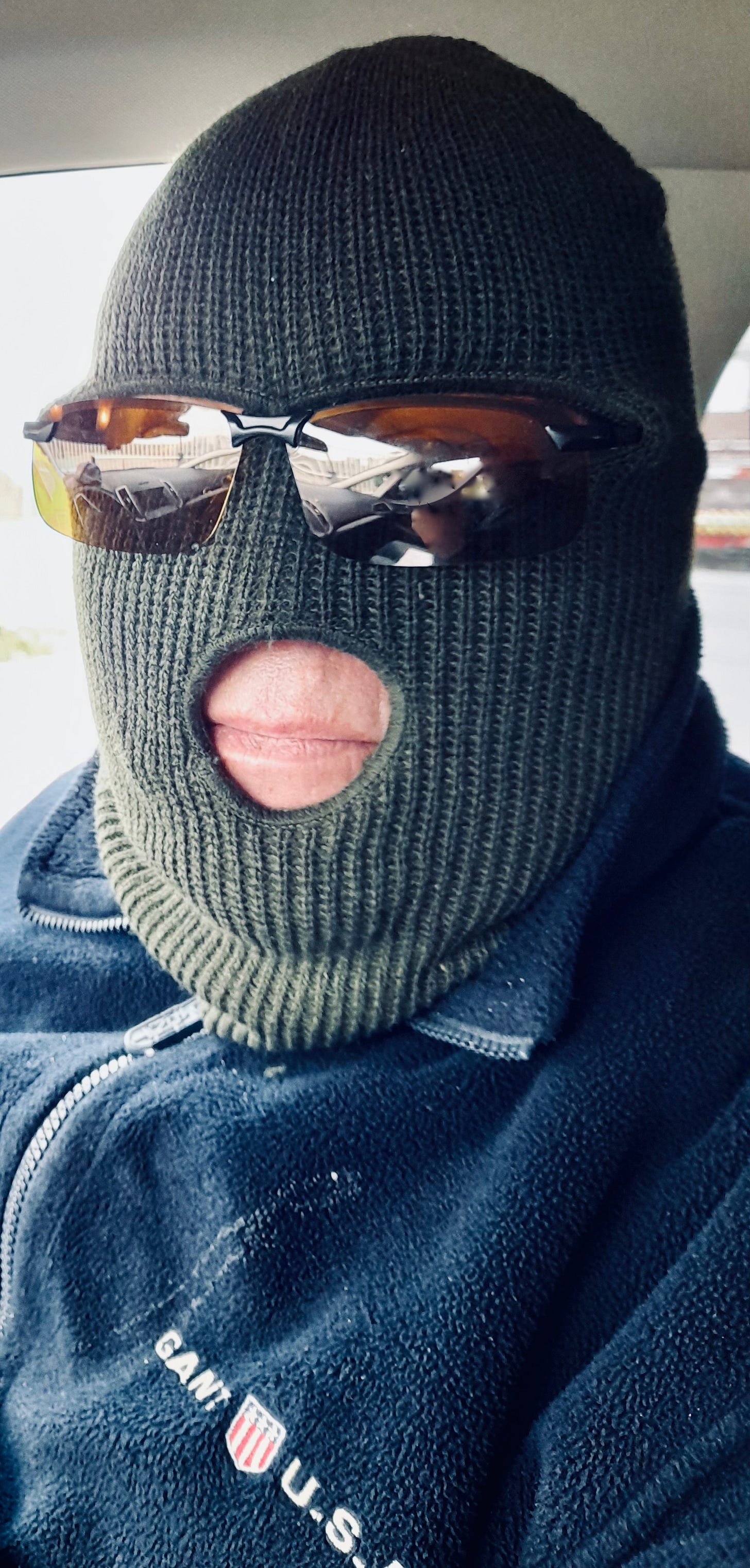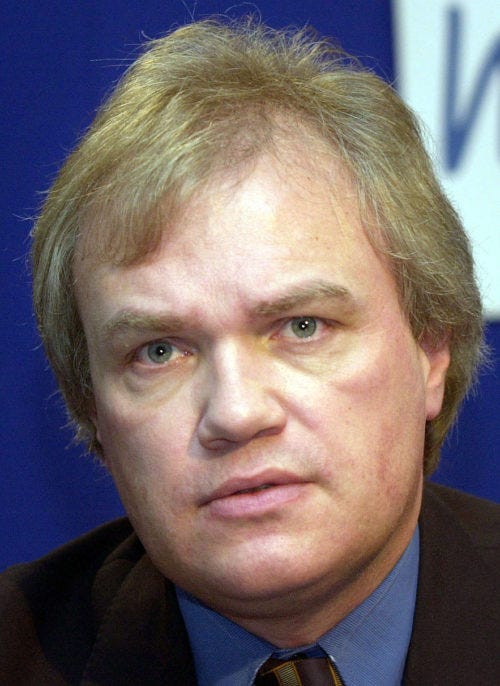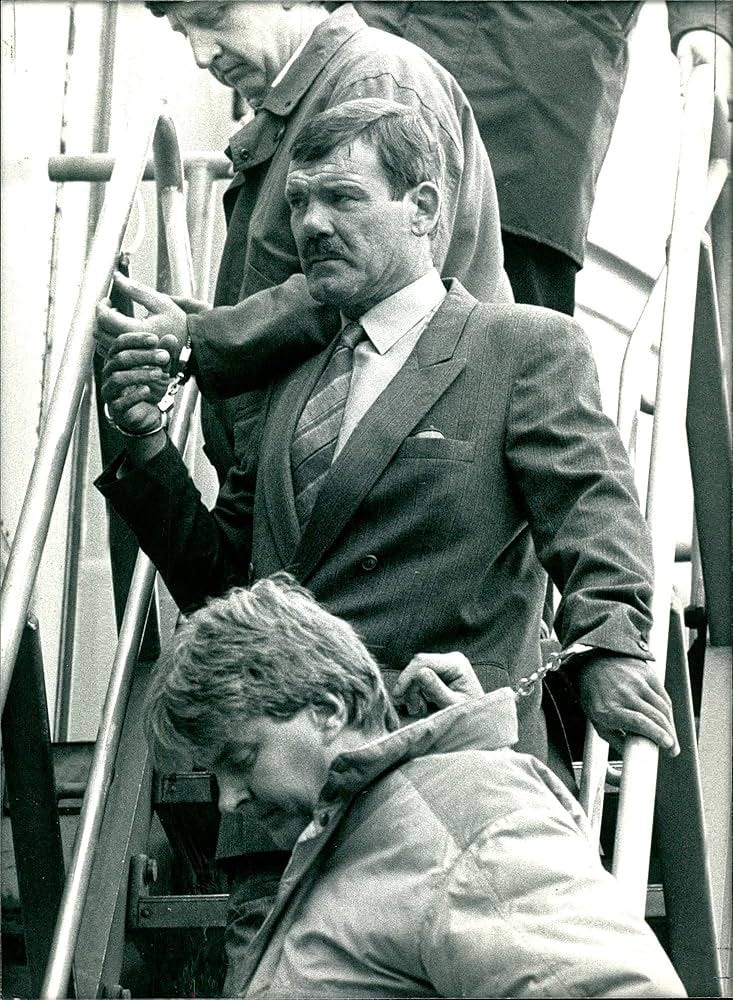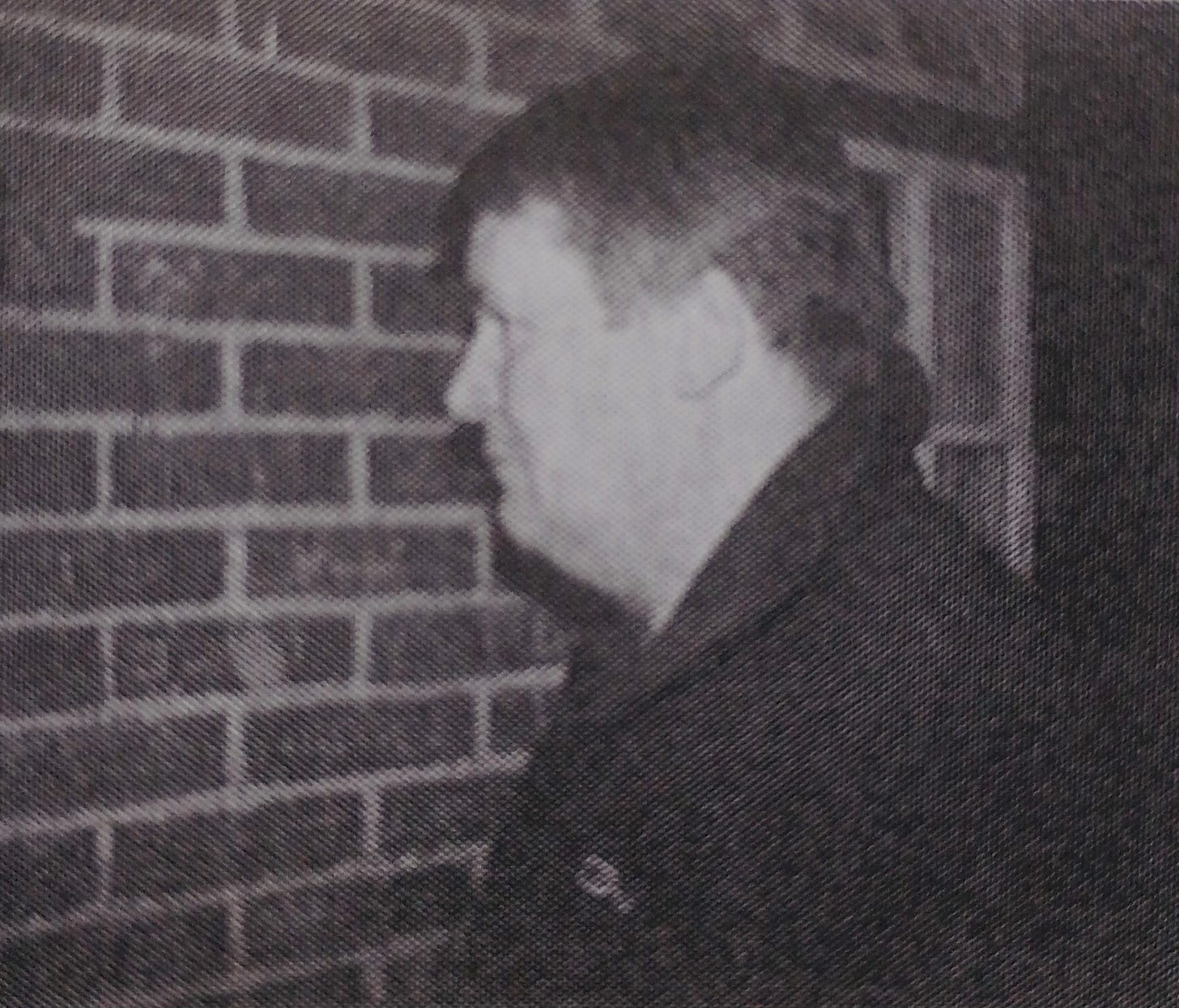The Metropolitan police has paid damages to yet another detective named in an internal corruption report that concluded the UK’s biggest force had been wholly penetrated by organised crime.
Former detective inspector John Redgrave is the second police officer known to have received a five-figure payout after suing for defamation over mentions in the Operation Tiberius Strategic Intelligence Report.
The report was written in 2002 and alleged that 61 former and serving officers were in the pocket of north and east London crime families.
Redgrave, 71, a veteran Met detective whose career spanned the transition in organised crime from armed robbery to drugs, was alleged to be one of them.
Known as the Ginger Giant, he had taken on the elite of south London gangsters following the 1983 Brinks Mat robbery and later mounted operations against the Adams, Hunt and Bowers crime families.
However, the Tiberius report alleged he was working for the Canning Town-based Bowers brothers, who are allies of the Hunts and Adams crime groups.
Redgrave was investigated for ten years before leaving the Met in 2004. He was never prosecuted and maintained throughout that he was the victim of a plot by organised crime to discredit him that led to a witch-hunt.
Tiberius also names police informants inside the same crime groups, some of whom it claimed were double agents working as ‘conduits’ to corrupt detectives.
The 165-page report was unlawfully leaked in 2014 to a journalist working for The Independent and later posted online by a blogger.
In response to parliamentary questions, the Met admitted Tiberius was authentic but did not seek to have it taken down, despite accepting that sensitive intelligence now in the public domain put lives at risk.
The Upsetter has previously revealed how the Met paid out a retired detective sergeant and an informant mentioned in Tiberius.
In 2022, DS Nigel Waldron brought a defamation case over claims that during his service he had worked corruptly for the Islington-based Adams crime family.
The Met avoided a trial by paying Waldron to settle his claim just before his death from cancer.
Last year, ‘Richard Harris’, the pseudonym of a prolific police informant who moved drug money for the crime families, sued on the grounds the leak endangered his life and the police had failed in its duty to protect him.
The Met did not contest his claim either, which included new allegations about having supplied and taken cocaine with a senior officer named in the Tiberius report as working for the Canning Town-based Hunts.
The retired senior detective denies being corrupt, but declined to say why he never sued the Met.
Many other detectives named in Tiberius never sued but claimed the corruption allegations were based on false intelligence, possibly fed in by organised crime or jealous cops.
Taking no legal action against the Met is not proof of a detective’s guilt, similarly, the Met made no admissions when paying out those who sued.
The legal claims have also relied on breach of confidence as Tiberius is a ‘SECRET’ report leaked from inside the Met.
The Data Protection Act imposes a duty to tell those mentioned in Tiberius that their personal data had been leaked and to plug the leak. However, for reasons it will not explain, the Met did neither.
Why the suspected leaker of such sensitive intelligence was not ruthlessly pursued is something the Met also struggles to explain.
He is likely a disgruntled senior detective who at the time was desperate to divert attention from his own corruption and mental collapse while trying to solve the infamous murder of Daniel Morgan, a private detective.
Detective chief superintendent Dave Cook was exposed during the Morgan murder trial for having corruptly coached prosecution witnesses. This and non-disclosure led the prosecution of five men to collapse in 2011.
The Met and Crown Prosecution Service (CPS), aware of the damage Cook could cause if he was prosecuted for perverting the course of justice, never put him on trial, apparently it was not in the public interest.
However, an independent panel report in 2021 into the Daniel Morgan murder made the case that Cook should have been prosecuted for leaking police material, including parts of Tiberius, but was in effect protected by the Met and CPS.
Cook has repeatedly refused to speak to The Upsetter about these matters.
By contrast, the Met ruthlessly pursued DI John Redgrave for a decade. He was one of the main targets of an anti-corruption squad known as the Untouchables, who crawled all over his personal and professional life from 1993 to 2004.
But after a 7-year suspension on full pay, there was no criminal trial and just a half-baked discipline offence to justify all the expense and all the excitable briefings and nose tappings given to tame journalists.
Redgrave was required to resign. But highly usually he left the Met in 2004 with a full pension, an indication that the force was not throwing the book at him just closing the embarrassing case.
That year, this reporter published the results of an investigation of the Met’s pursuit of Redgrave in the book Untouchables, which also looked at wider failings, cover-ups and double-standards of the anti-corruption campaign.
Redgrave was well-known to colleagues who respected or hated him and by the top echelon gangsters he chased, who feared him and wanted him dead or discredited.
By the time the Met covertly launched its anti-corruption Ghost Squad in 1993, Redgrave had made enemies of officers with questionable pasts now with the power to decide in secret who was bent and who wasn’t.
The main case against Redgrave began in June 1994 when Geoff Brennan was introduced to the Ghost Squad by his friend, detective sergeant Chris Smith.
Brennan alleged he had bribed Redgrave and detective constable Michael Charman during an operation they had recently mounted on his information.
The Ghost Squad jumped on the allegation and made Brennan its first supergrass while appointing Smith as his handler without any questioning of their problematic relationship.
Had the Ghost Squad done so it would have known about the corruption concerns about Smith and Brennan that went back to the 1983 Brinks Mat robbery inquiry.
Brennan came from south London and a family of informants close to the villains suspected of involvement in the robbery and dispersement of the gold. Among them were John ‘little legs’ Lloyd, John ‘Goldfinger’ Fleming and ‘Tall’ Ted Williams.
Redgrave and Charman had served on the original Brinks squad with distinction, according to their boss Brian Boyce.
Brennan’s father was Charman’s informant and passing useful information on ‘little legs’ and ‘Tall Ted’.
Smith, a south London detective, only joined the Brinks Mat inquiry when it expanded after suspect Kenny Noye killed an undercover cop. Smith came with an informant - Geoff Brennan.
But Boyce did not trust the pair and felt they and other south London detectives were trying to steer his inquiry away from Lloyd and others.
A decade after the Brinks robbery, Geoff Brennan emerged out of the blue offering Charman information on Fleming and Williams. He said they were involved in drug trafficking from Portugal, arms dealing in Sierra Leone, money laundering in Venezuela and a £400,000 phone fraud on Chinese businessmen.
Redgrave was cautious but mounted an international operation codenamed Nightshade using undercover officers who verified what Brennan was saying.
However, half way through Operation Nightshade, Smith took Brennan to a secret meeting with the Ghost Squad in June 1994, where the informant claimed he had paid a £40,000 bribe to Redgrave and Charman.
The Ghost Squad began a secret investigation into Redgrave. Meanwhile, Brennan was given a new identify and a new house on the taxpayer.
But the supergrass was playing the Ghost Squad and refused to follow through with a statement against Redgrave and Charman. He also claimed that he and Smith had “rehearsed” the bribe allegations against the pair.
The Ghost Squad hid Brennan from investigators looking into the £400,000 phone fraud. But pressure mounted to produce the supergrass so he could be prosecuted. The fraud victims were connected to the Chinese government who were pressing the Foreign Office for action.
Brennan was convicted after an explosive Old Bailey trial where all his sordid dealings with Smith and the Ghost Squad came out.
When he emerged from prison, Brennan admitted to this reporter that he had lied about bribing Redgrave and Charman to get protection from prosecution for the phone fraud on the Chinese.
‘Tall’ Ted Williams had earlier told this reporter that Brennan had gone into police protection to avoid paying him his share of the £400,000 fraud proceeds.
Anti-corruption detectives, internal documents and court transcripts confirm these events and also show that the only detective who took money from Brennan was Chris Smith.
Smith was questioned under oath about £10,000 Brennan had paid into the detective’s bank account for moonlighting security work. Smith refused to answer questions claiming to do so would incriminate him.
He was never prosecuted and the Ghost Squad did everything to cover up the scandal and make anything criminal stick to Redgrave.
It didn’t matter that they came up empty-handed, because Redgrave’s career was over. He remained suspended for an incredible seven years and was required to resign in 2004.
Detectives like the Ginger Giant, who join the police looking for a family and invest their self-worth in serving it, are severely shell-shocked and damaged when that family turns on them.
For the last twenty years he has kept his own counsel. But that changed with his payout this month over the references in the Tiberius report, none of which was ever put to him.
Significantly, the Met did not contest Redgrave’s defamation claim, even though, arguably, it was way out of time.
Had the case gone to court the Tiberius report would have triggered further disclosure about the leak and independent scrutiny by a judge.
The Met versus Redgrave is a classic case of why the police cannot be trusted to investigate themselves as it is an organisation riven by agendas, bad blood, protectionism, all hidden behind a false veil of operational secrecy.
What follows are Redgrave’s unvarnished insights into the war on organised crime in London, its personal cost and observations on how corruption works and the empire building and score settling of those behind the notorious Tiberius report.
It’s an interview like no other with a former detective considered one of the Met’s most corrupt, whose defamation claim they have now settled.
The Redgrave interview raises so many questions about the Met - the most eloquent of which is, what the fuck was going on?

